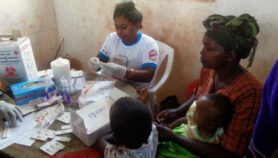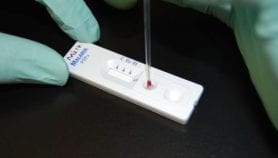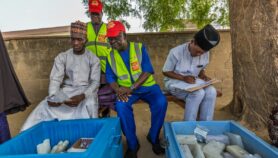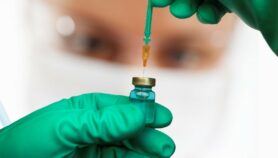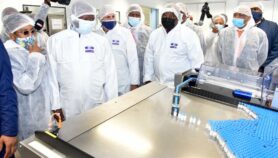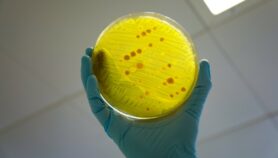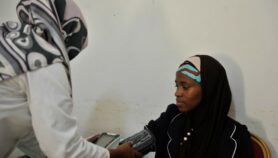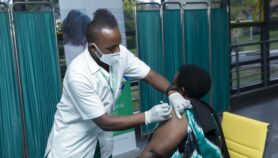25/08/21
Innovation vital for equal access to COVID treatments
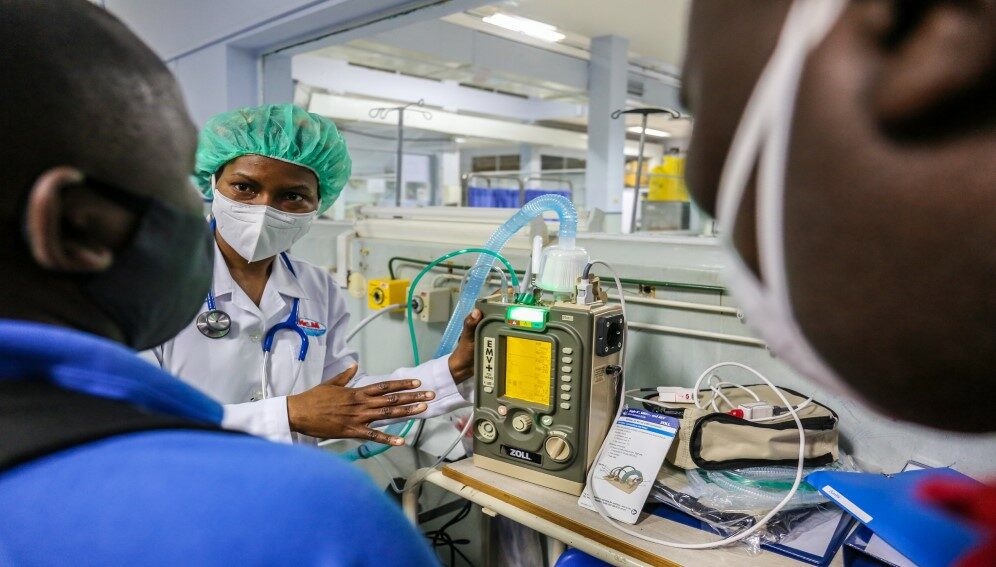
By: Sam Otieno
Send to a friend
The details you provide on this page will not be used to send unsolicited email, and will not be sold to a 3rd party. See privacy policy.
[NAIROBI] The international community should learn from the vaccine inequality seen during the COVID-19 pandemic to avoid repeating mistakes that could stifle access to treatments for the virus, a report says.
The report published by the Drugs for Neglected Diseases initiative (DNDi), a global non-profit research and development organisation, calls for increased political attention to and funding research for the development of COVID-19 medicines.
“We’ve seen major scientific advances and the development of technologies, particularly vaccines, at breakneck speed but we’ve also seen truly grotesque disparities in access to those vaccines,” says Monique Wasunna, director of DNDi’s regional office for Africa.
Only 1.85 per cent of Africa’s population have been fully vaccinated against COVID-19, according to Africa Centres for Disease Control and Prevention, while many high-income countries have more than half of their populations vaccinated.
There is a risk that as high-income countries achieve high rates of vaccine coverage, their focus may shift almost entirely to investing in surveillance, testing and follow-up vaccination, adds Wasunna.
The report says: “The battle for equitable access to medical innovations has been raging since the mid-1990s, beginning with the struggle for global access to antiretroviral therapy (ART) for HIV, and repeating time and time again for other diseases – from hepatitis C and cancer to diabetes and COVID-19.”
“Curabitur vitae nisl in tellus eleifend fermentum nec eu arcu. Donec dictum augue sed metus vehicula nec”
By joe blogs
“Why is such a feat of science – resulting in life-saving technologies so soon after the emergence of a deadly global pandemic – benefiting only a fraction of those who need it?”
The report highlights a need for increased and sustained funding to drive innovations for tackling diseases, and binding rules to govern research and development, as well as equitable access to essential health tools such as gloves, masks, intensive care beds and vaccines.
According to Wasunna, the Access to COVID-19 Tools Accelerator (ACT-A), a global collaboration to accelerate the development and delivery of COVID-19 tests, treatments, and vaccines, has fallen short in critical ways. She believes unequal representation of policymakers, experts and civil society from low- and middle – income countries has resulted in a lack of prioritisation and funding for research driven by and in low- and middle-income countries.
“ACT-A should explicitly address intellectual property barriers and improved transparency of development, production, and supply, and support collaboration between ACT-A pillars to enable a ‘test and treat’ approach to early treatment,” Wasunna tells SciDev.Net.
“We strongly support the proposal of South Africa and India to the World Trade Organization, which would allow countries to choose whether to grant or enforce patents and other intellectual property related to COVID-19 and to take other steps necessary to ensure open sharing of knowledge and data, including through technology transfer.
“We urge other countries to support this proposal without delay.”
Stakeholders in the ACT-A have proposed a strategic review of the initiative, which will consider any “challenges and gaps”, according to an online statement by the World Health Organization, one of the partners.
Benjamin Kagina, a senior research officer at the Vaccines for Africa Initiative, University of Cape Town, South Africa, urges African countries, research institutions and scientists to stop working in isolation and form a solidarity collaboration model within Africa and the rest of the world to promote access to COVID-19 vaccines and treatments.
“We should … have a realisation as a continent and change the focus from the representation on the table to bilateral agreement for knowledge and technology transfer,” says Kagina. “This will create opportunities for the continent and also boost in response to COVID-19 and future pandemics.”This piece was produced by SciDev.Net’s Sub-Saharan Africa English desk.
References
DNDi COVID-19 policy report – Another triumph of science, but defeat for access? [AUGUST 2021]






